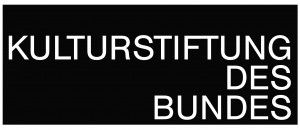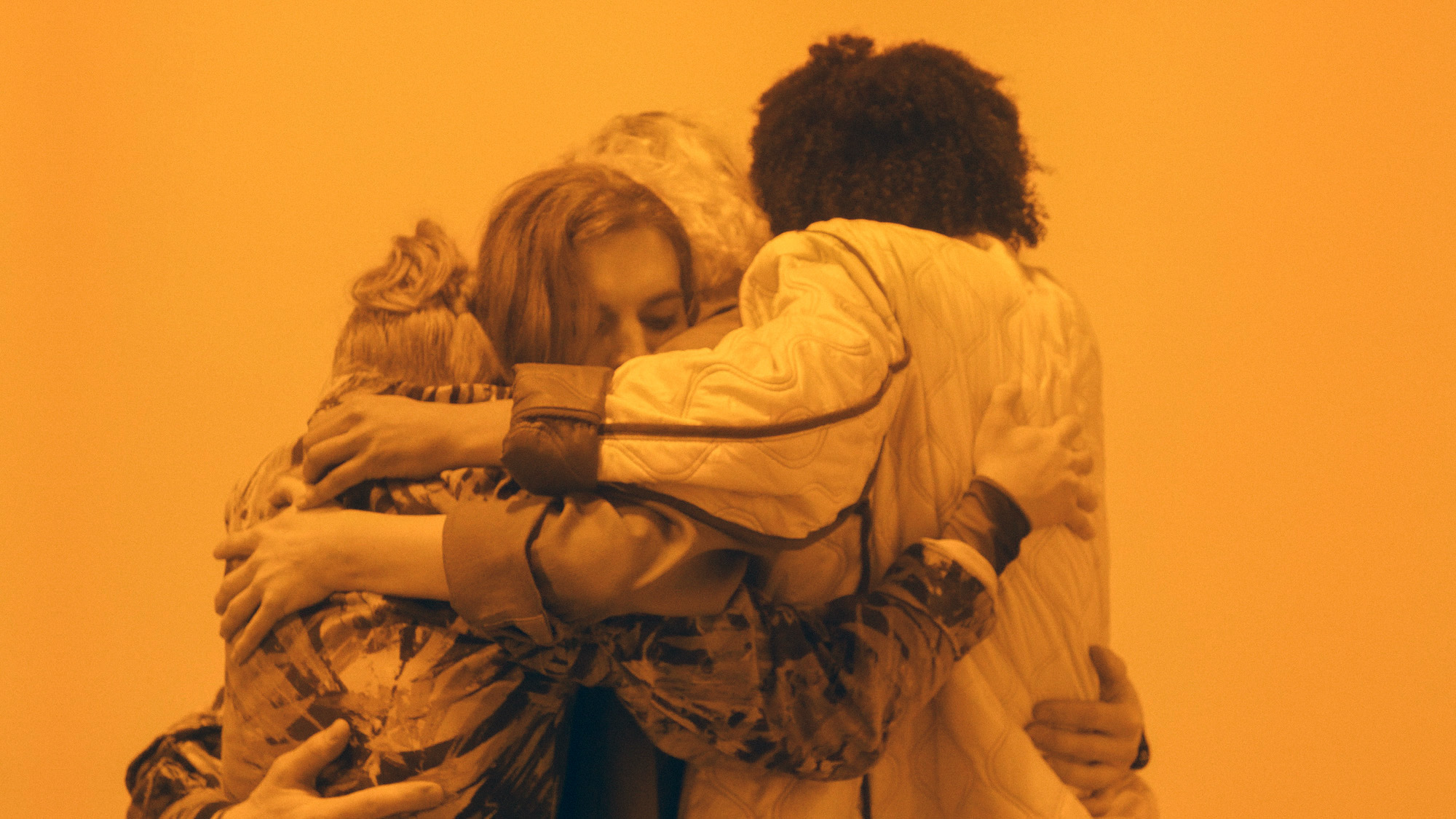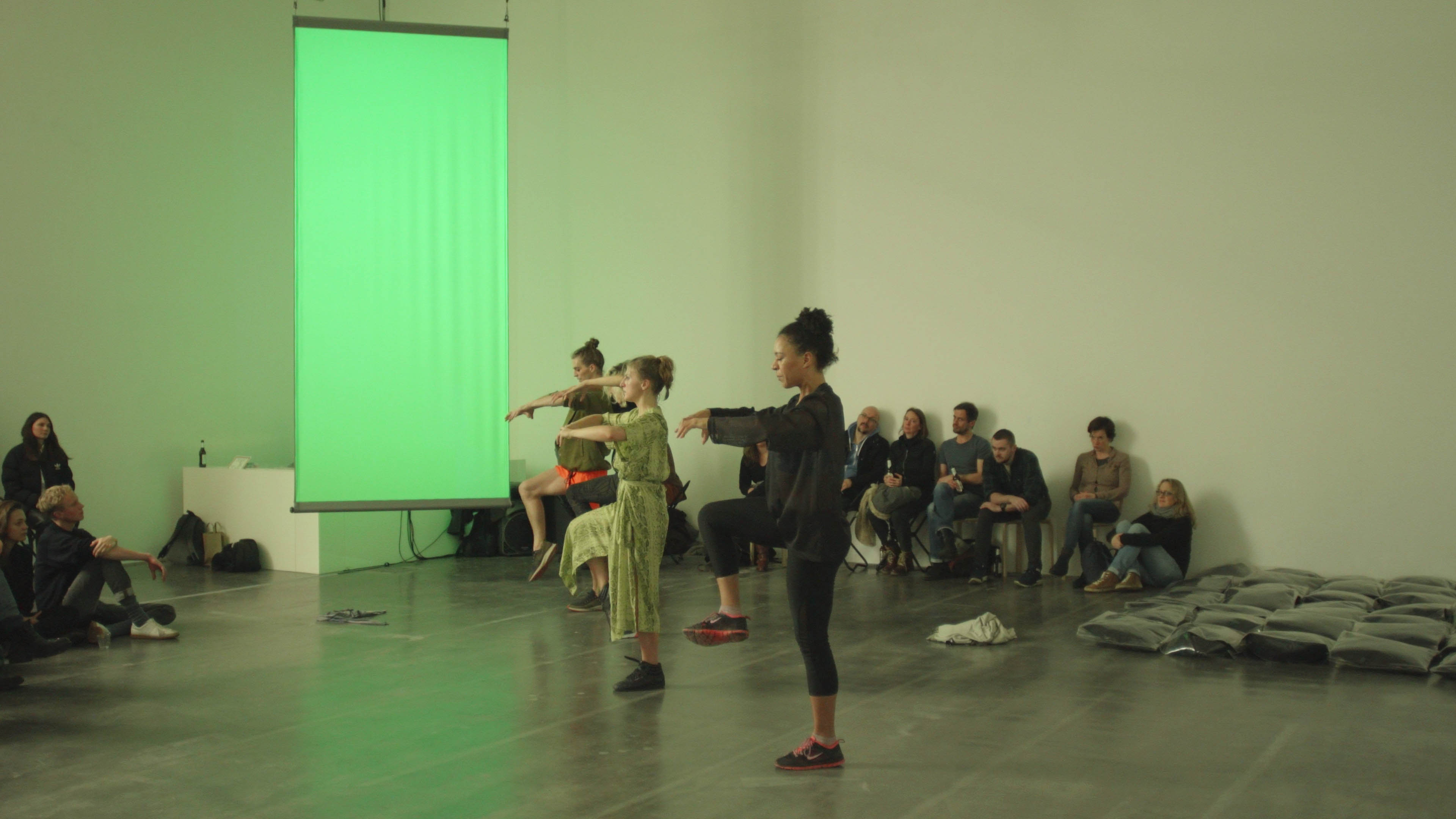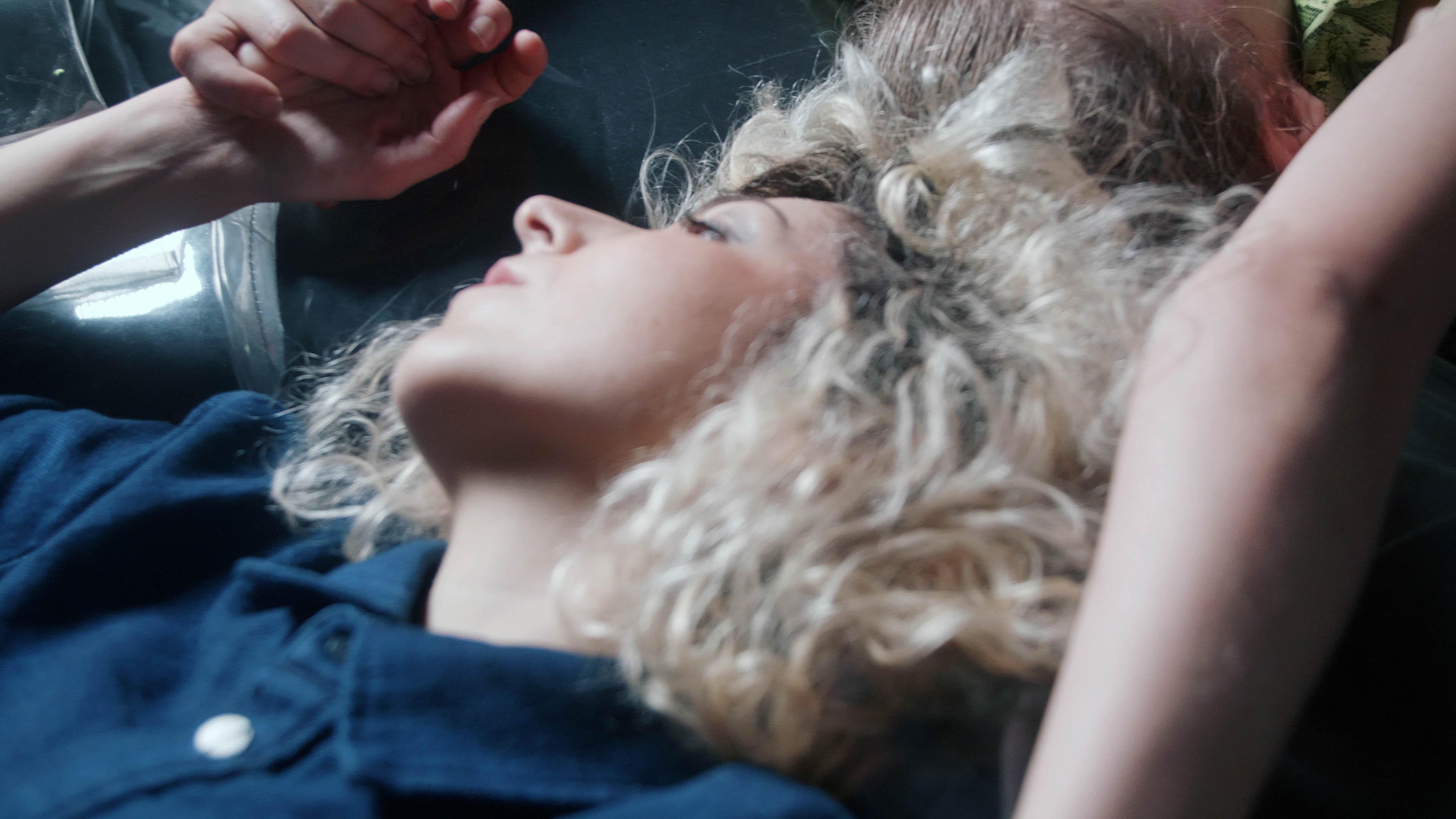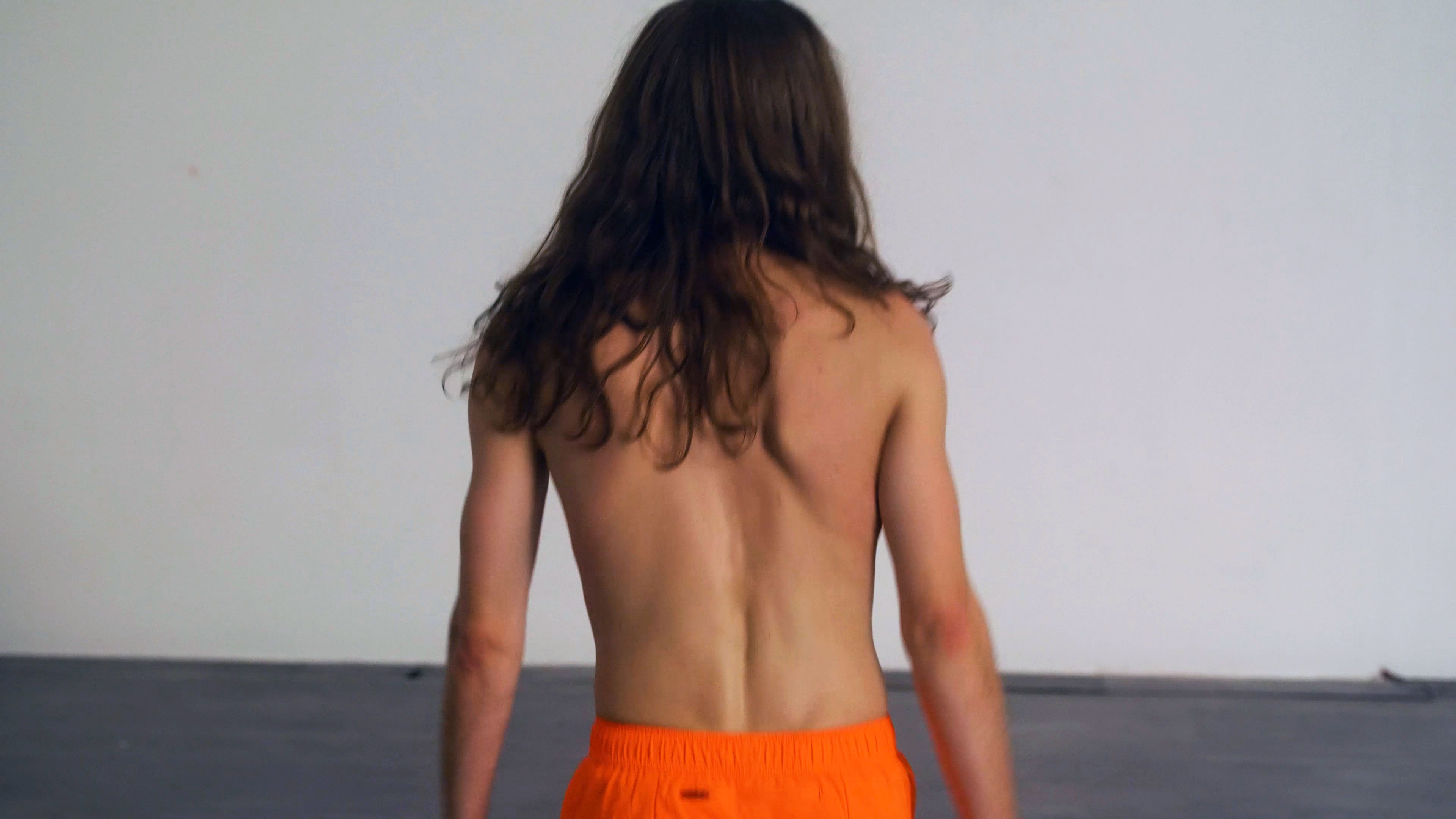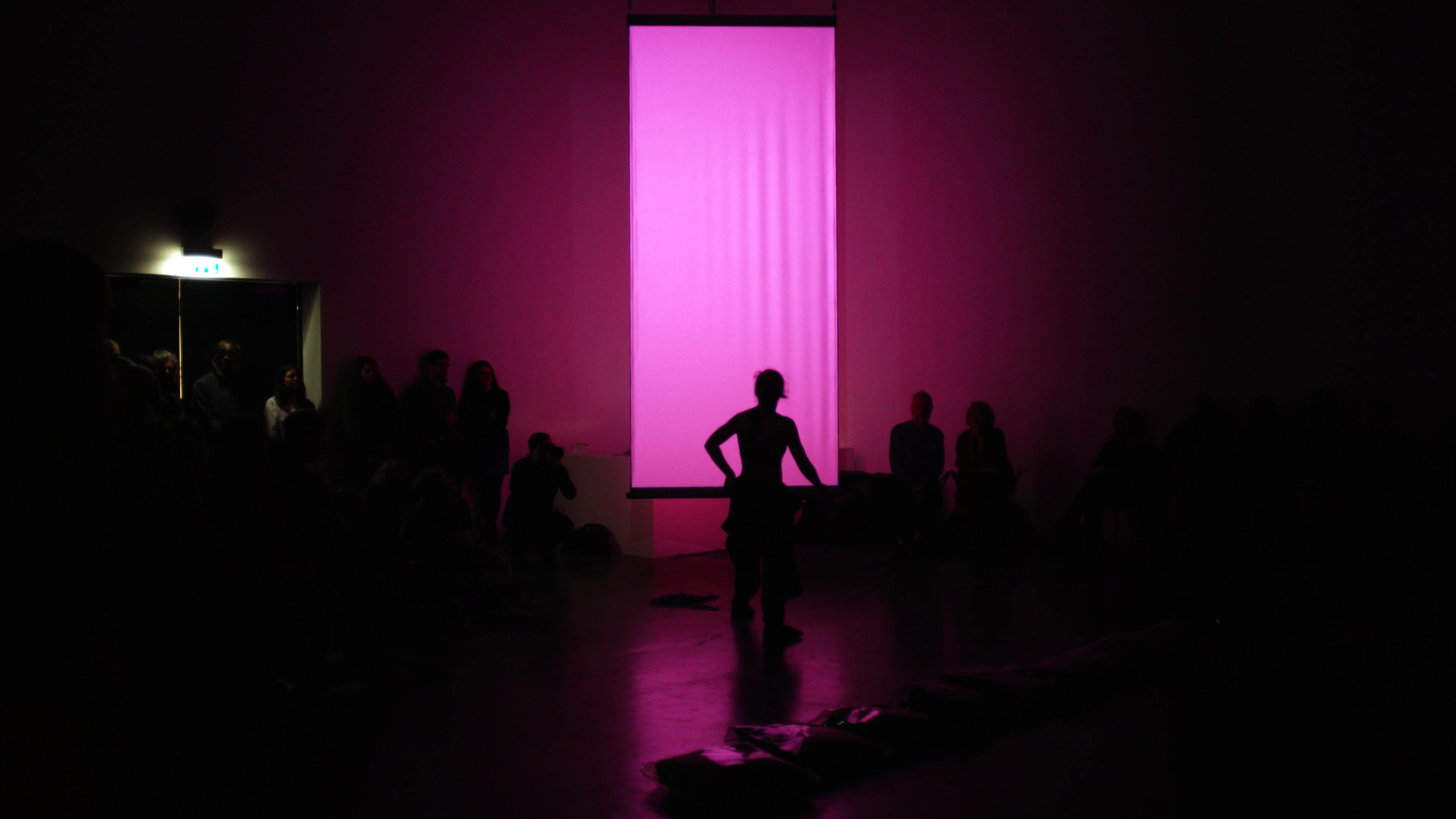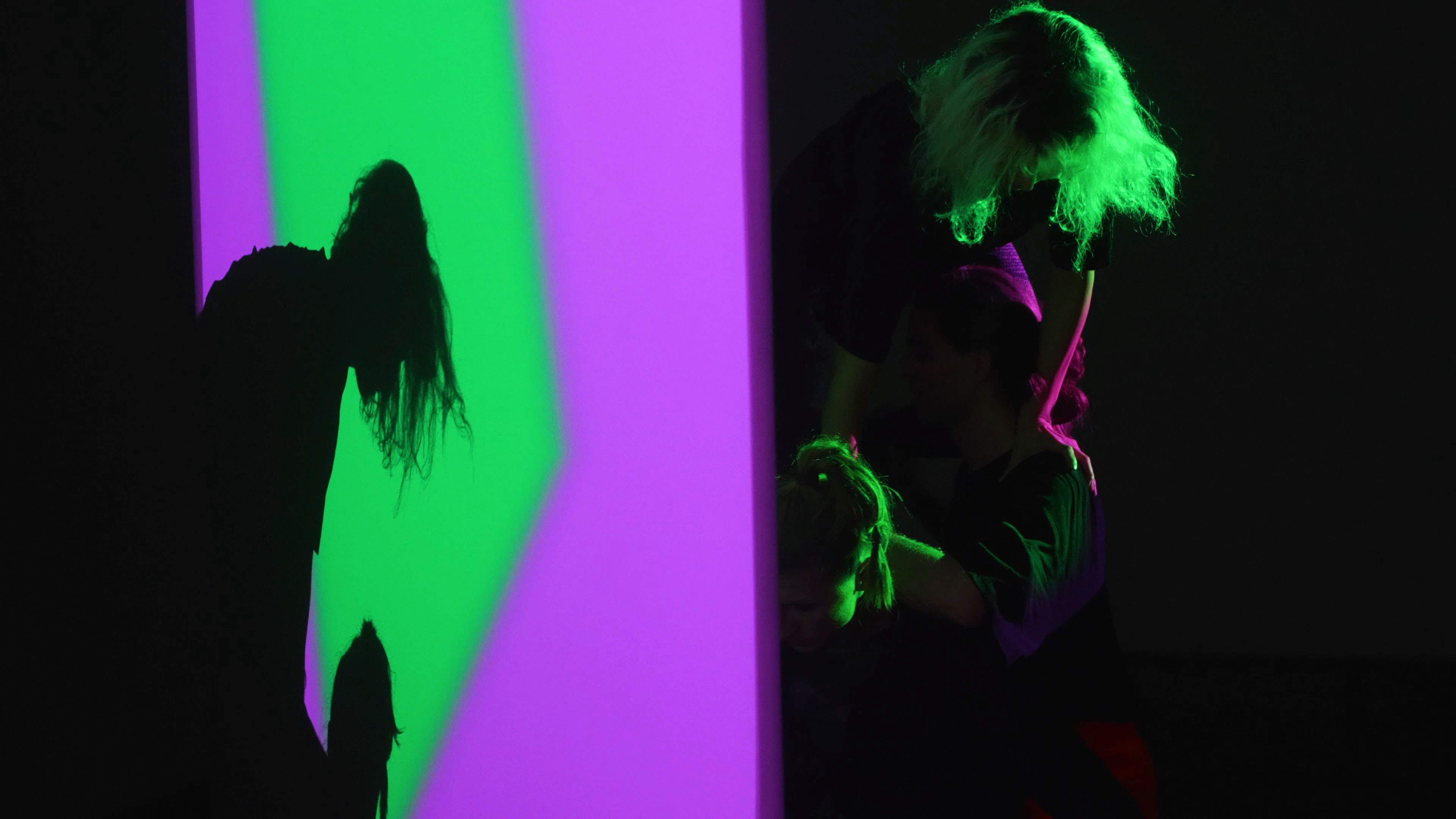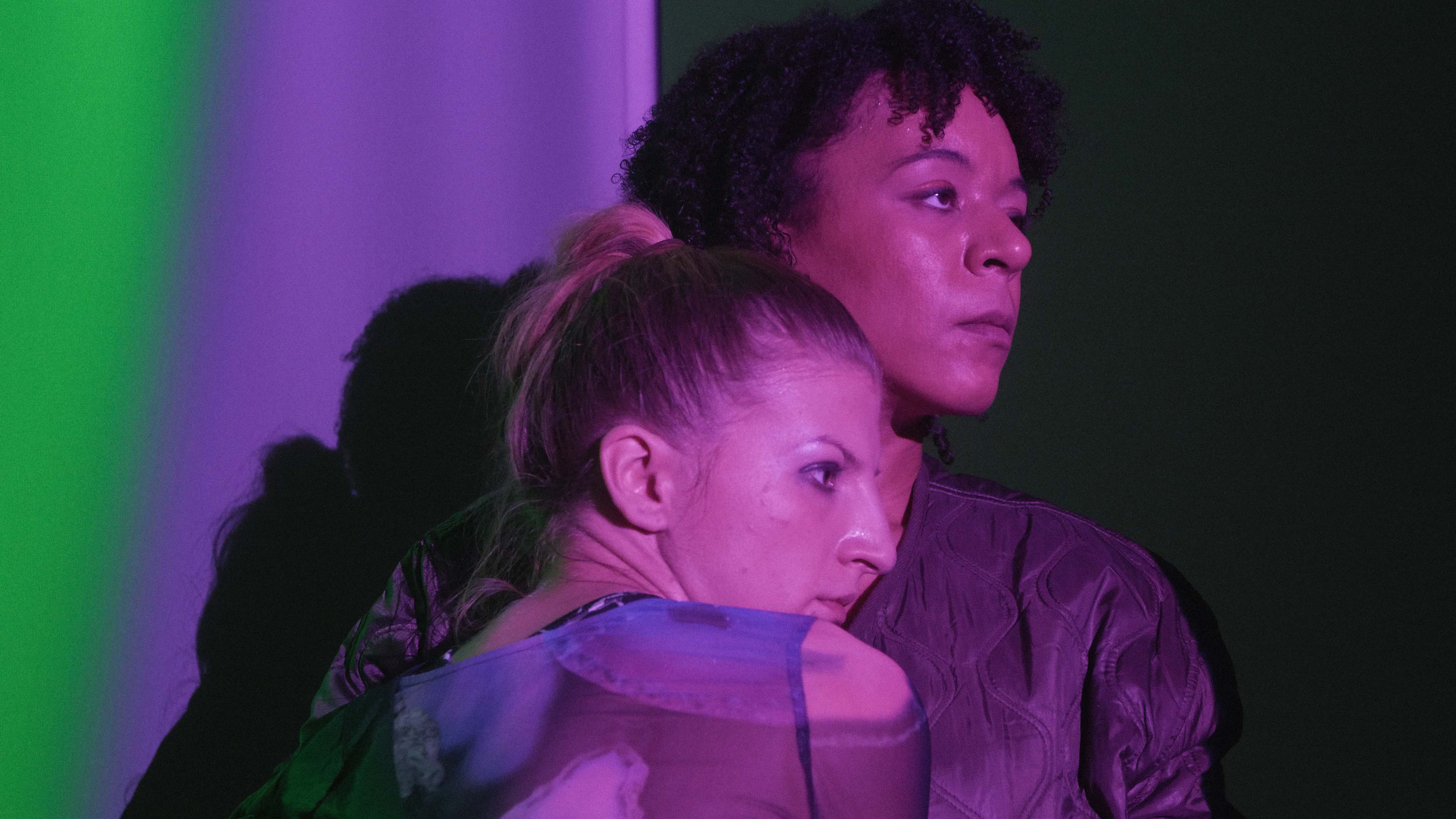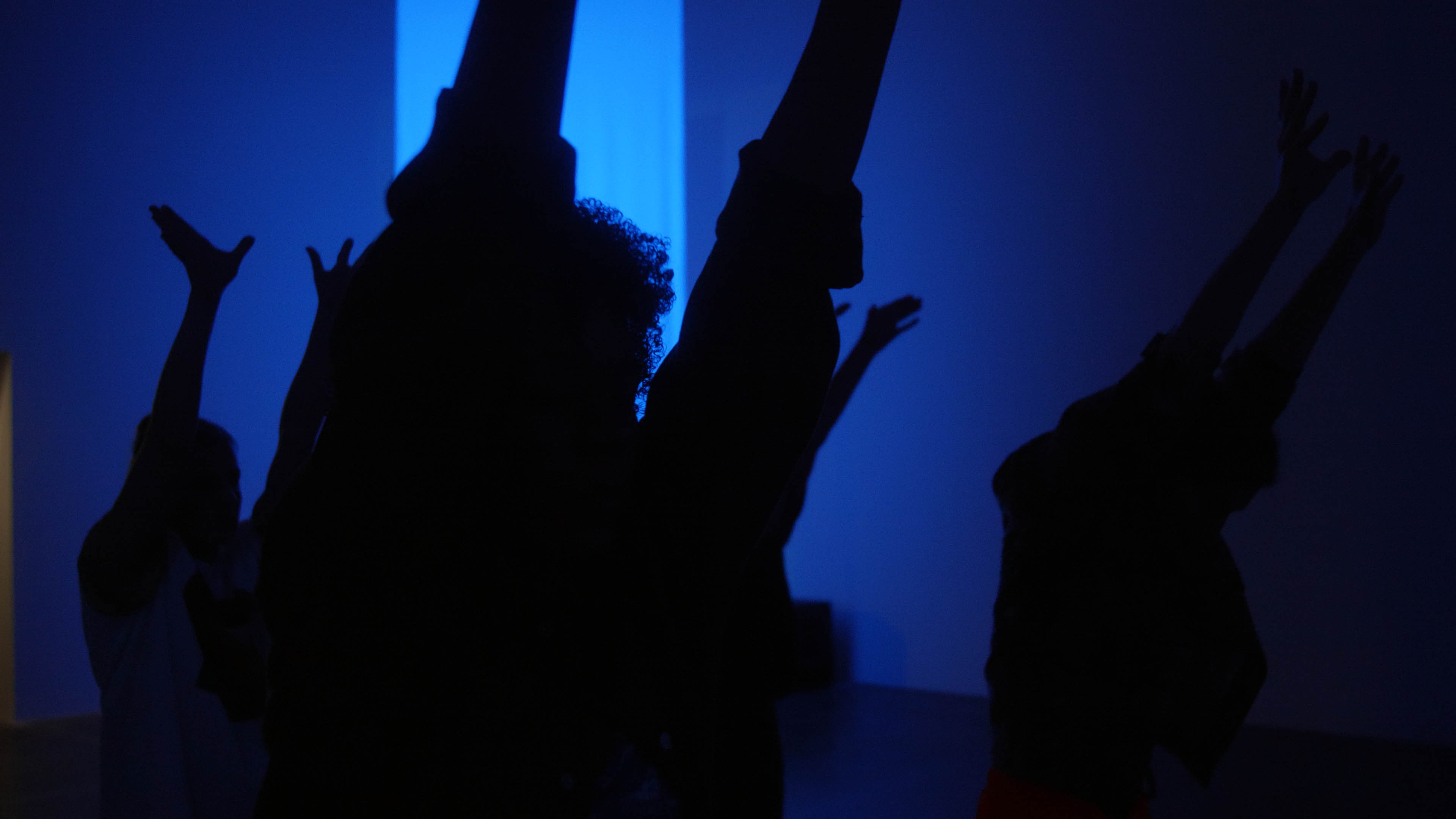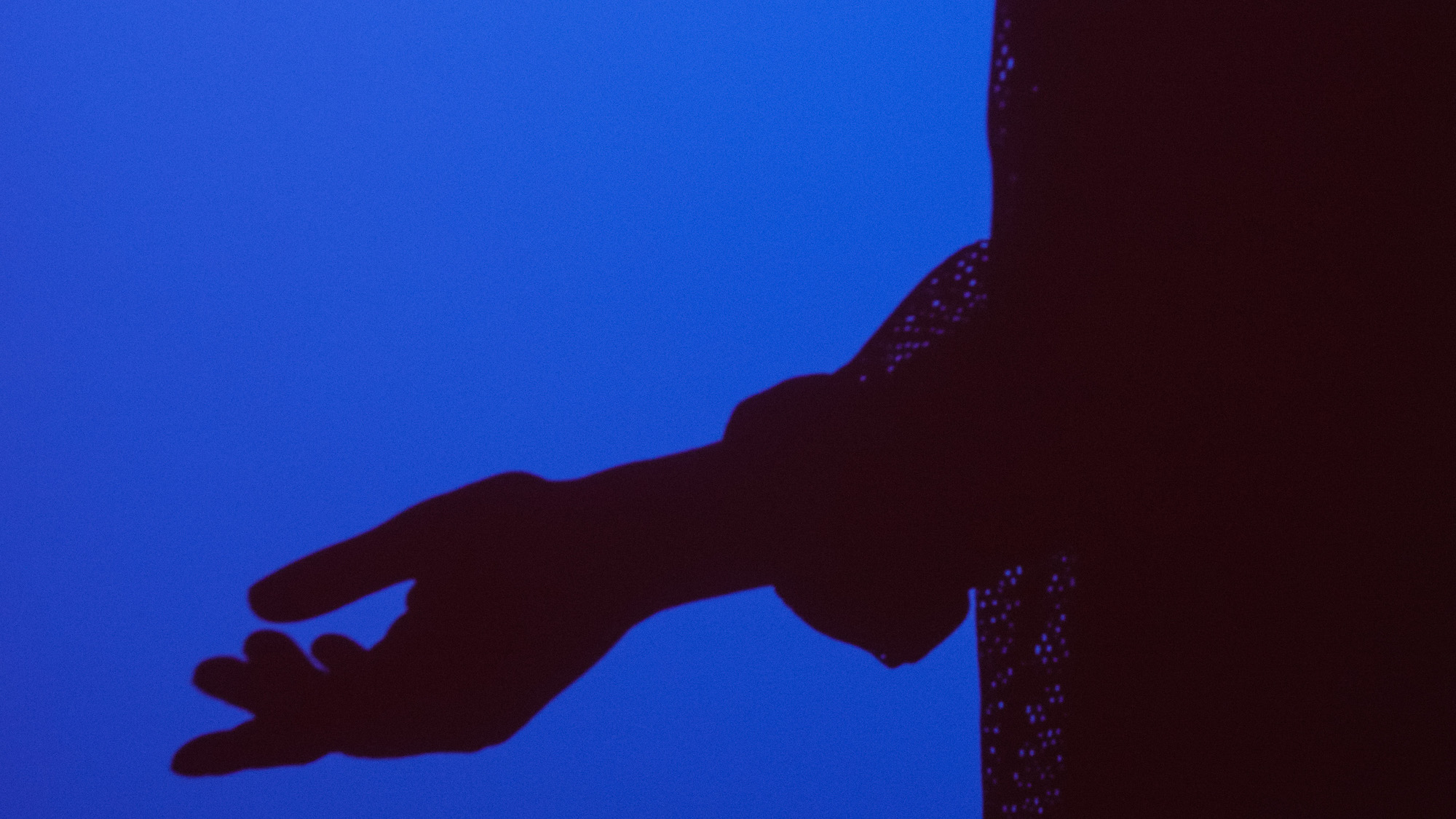January, May & June 2020
INDEPENDENCE IN SPACE
About the impossible attempt to think freedom into a space
Edith-Russ-House for Media Art
In cooperation with the Oldenburg State Theater
Part of the 2-year-project FIGHT (FOR) INDEPENDENCE (2018-2020)
About the installation
From 14 May to 14 June, the Edith-Russ-House for Media Art is showing the installation “Independence in Space & Virtual Reality”: presented free of charge from sunset to midnight in the “Aquarium” – the window front of the exhibition house. The video and VR installation takes up the choreographic installation “Independence in Space”, which took place in January 2020 in the Edith-Russ-House, and interweaves it with the research for the future film “Independence“. Through 360° videos, viewers can visit various research locations with their own smartphones. The films are accessible via QR codes, which can be scanned on a monitor in the “Aquarium” from 10 am to midnight.
The video installation, which documents the choreographic installation “Independence in Space” on film, takes the impossible attempt to think freedom in a space further and transports it into the public space surrounding the Edith-Russ-House.
About „Independence in Space“
In the four-hour choreographic installation “Independence in Space” at the Edith Russ House for Media Art, the Costa Compagnie explores the physical and spatial dynamics of global independence movements. Part of the team is the Catalan dancer and performer Montserrat Gardó Castillo, who translates the conflict over independence and identity into choreographic interrogations of folkloric body images and traditions. Also in the team is the Afro-German protagonist of the documentary “Independence”. Independence” Helen Wendt, who abstracts her own experiences on the subject and incorporates them into the work. The installation moves along the freedom of those who think differently, isolation, loss, departure, demarcation and solidarity and connects with a composition of atmospheric sound, musical elements and language fragments that originate from research carried out by the Costa Compagnie in Great Britain, Bavaria, Catalonia and South Sudan.
The artists also deal with the question of how one can make oneself independent of traditions, social and political norms or even (social) patterns of movement and space. Or is real spatial-political independence impossible, since space itself always imposes its own limits on us?
“Independence in Space” marks the most abstract part in the cross-platform art project FIGHT (FOR) INDEPENDENCE. It forms a step out of the research and its representation via video and text and translates the political issues into a choreographic associative world surrounding the spectators. The audience is invited to question the notions of independence, space, freedom and body and to place themselves in relation to the performers and the space in the truest sense of the word.
The short film format “Independence in Space” submitted here summarises the work with cinematic means.
INDEPENDENCE IN SPACE & VIRTUAL REALITY – A Publicly Accessible Video-Installation
Exhibition from Thursday, 14 May 2020 to Sunday, 14 June 2020
–
INDEPENDENCE IN SPACE – A Choreographic Installation
Opening on Saturday, 11 January 2020 at 6 pm
Second performance on Sunday, 12 January 2020 at 3 pm
Duration: approx. 240 minutes
Freely accessible at all times
Free admission
TEAM @ Independence in Space
Performance, Co-Creation Montserrat Gardó Castillo, Katharina Shakina, Helen Wendt Choreography, Performance Jascha Viehstädt Artistic Director, Research Felix Meyer-Christian Composition, Soundart Marcus Thomas Programming, Video Erik Kundt Dramaturgy Marc-Oliver Krampe Production Management Franziska Merlo Photo & Video Documentation, Editor Thomas Oswald
A production by Costa Compagnie in cooperation with the State Theater Nuremberg and the State Theater Oldenburg, as well as the Edith-Russ-Haus for Media Art.
Funded in the Fonds Doppelpass by the Federal Foundation of Culture.
Kindly supported by INVR.SPACE
Dancing Separatism
The Costa Compagnie wants to track down global independence movements in dance. This can be experienced on the weekend in Oldenburg.
Published on 11.01.2020 in TAZ
11. 1. 2020 / By Jan-Paul Koopmann / taz.bremen editor
BREMEN taz | Montserrat Gardó Castillo does not make it easy for herself with her identity. “It is complicated,” says the dancer, born in Barcelona in 1982, “perhaps more complicated than many others.” It starts with the language already: At home in her family she spoke Catalan, but with most of her friends* she spoke Spanish. In addition, she attended a French school, has lived in Germany for 13 years and has been working in international contexts for a little longer – in English, of course.
In any case, Castillo hadn’t expected that the Catalan striving for independence would take her as it has now happened. Especially since her socialization is part of this self-evident US-American cosmopolitanism anyway, like most of her year: with formerly “Baywatch” and today Netflix.
The ambiguity of her history is exemplary for the Costa Compagnie’s project “Fight (For) Independence”, the second part of which can be seen this weekend at the Edith-Russ-House for Media Art in Oldenburg.
The performers* have researched and visited independence movements all over the world: not only in Catalonia, but also in South Sudan or Great Britain. The fact that the Compagnie has also paid their respects to the Bavarian Party already reveals that separatists today have often distanced themselves from a previously widespread idea of the political left: that of an anti-imperialist avant-garde, a “revolutionary subject” that could be relied on for a long time.
You will recall that after the revolutions of the Western working class had been crushed by the bank, or never happened at all, the left had turned to the separatist movements. Charged to the point of “Can’t go on” with images of David’s struggle against Goliath, freedom, authenticity, and even identity.
For director Felix Meyer-Christian, this is now only the occasion for a search for traces when he openly asks: “Is this still a progressive project? Or is it just the renaissance of reactionary nationalisms?
Art approaches the social movements in different ways. The Costa Compagnie has conducted interviews, filmed on site, and will also work with virtual reality glasses in subsequent productions in order to open up the most direct, immersive access possible.
Dance piece without spoken words
The remaining parts of the series, in which Edith-Russ-Haus and the company as well as the State Theaters of Oldenburg and Nuremberg are involved, will be shown in May at the “Flausen + Banden Festival” in Oldenburg. The part that is now coming up, “Independence in Space”, is perhaps the most down-to-earth, although it is the most abstract: it is a dance piece, completely without spoken words.
And this is where Montserrat Gardó Castillo comes into play, who, together with dancer and choreographer Jascha Viehstädt and actresses Katharina Shakina and Helen Wendt, will attempt to physically explore the fundamental possibility of freedom in space: as a “freely accessible installation”, as it is called.
“Independence in Space”
On Saturday and Sunday the artists will perform for four hours each, whereby it is up to the audience to decide when, how long and on which paths they want to experience “Independence in Space”. This does not only mean the organisational structure of the event, but also the content. Although the material of the production is from Catalonia this time, it should concern everyone who has to negotiate freedom individually along the borders of culture, nation, skin colour, gender or sexual orientation. At least that is how the Costa Compagnie formulates its claim.
Highly reflected
Montserrat Gardó Castillo offers her own experience as a model. Highly reflective, the dancer, who is also trained as a journalist, describes how emotions and rational considerations collided during the research. Of course she knows from her head that universalism is right and important. “Nevertheless, I still get goose bumps today,” she says when thinking about the trip.
In Catalonia, she visited folk festivals with the company, and took part in the “Castells”: multi-storey human pyramids that are formed quickly and not without danger in streets and marketplaces. In this combination of folklore and extreme physicality, she has had a collective experience that was foreign to her until then: “Suddenly I felt Catalan.
Cosmopolitan Jazz Montages
The stage action is now an abstraction of this emotion; instead of folkloric material, electronic rhythms and background noises can be heard as well as cosmopolitan jazz montages and field recordings – i.e. background sounds from demonstrations or from nature.
And then the last amazement about what the Edith-Russ-House for Media Art, which by the way heralds its 20th year with this event, actually has to do with dance, fades away. Politically and in terms of multimedia aesthetics, “Independence in Space” is absolutely no foreign body here. Although of course that’s exactly what it’s all about.
